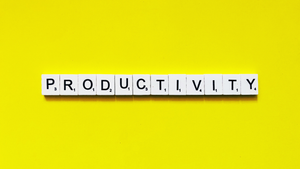After working on different teams across product and design, one thing has become clear. The people who thrive aren’t always the most talented. They’re the ones who keep projects moving, communicate well, and make work easier for everyone.
They follow through, stay grounded under pressure, bring steady, positive energy, and make progress feel more seamless. Not everyone notices these traits, but they make teams work, especially when things get messy.
In collaborative work like UX and product design, how you show up matters just as much as what you know. This post looks at the traits that make someone great to work with, and why they tend to outlast raw skill.
Being great to work with has more impact on your success over time than talent alone
Talent helps you stand out, but it’s not the only trait imperative to building trust.
In collaborative roles, your success depends on how well others can count on you. That means showing up consistently, following through, and helping the team move forward without adding bottlenecks.
The people who get invited into early conversations, trusted with important projects, or seen as leaders usually aren’t the loudest or the most brilliant. They’re the ones who make the process smoother, not by doing everything perfectly, but by creating a solid foundation and keeping everyone in sync.
What being great to work with looks like
Being great to work with shows up in consistent, observable behavior and how you operate day to day. These are the habits that build trust, keep projects on track, and make collaboration smoother for everyone involved.
Good attitude
Approach work with optimism and openness. Stay calm under pressure. People with a good attitude make collaboration easier, boost morale, and help people around them stay grounded when things get tough. They look for solutions instead of assigning blame, and their presence makes others more comfortable speaking up or asking for help.
Example: When a project hits a wall, they refocus the team on what’s possible instead of what went wrong.
Follow-through
Do what you said you’d do, consistently and without reminders. Reliability builds trust faster than any one-off win. It keeps projects moving and reduces the need for oversight. When things slip, you flag it early and take responsibility for the next step.
Example: If you commit to a deadline, it happens. And if it doesn’t, others hear about it well before it becomes a problem.
Clear communication
Keep people informed, aligned, and unblocked. In practice, this means surfacing blockers early, offering updates before they’re asked for, and asking good questions when something is unclear. It also means being good at giving and receiving feedback in a way that promotes momentum.
Example: When priorities shift, you proactively update stakeholders, explain what’s changing, and help realign expectations so no one’s left guessing.
Make work easier for others
Making work easier for others often means communicating more than feels necessary, which can look like creating easy-to-review designs, sharing videos or prototypes, documenting key decisions, or adding clear annotations. It includes writing agendas, setting goals, and making sure everyone is aligned on what’s happening and what’s coming next. It’s not just about your part of the work, but how it fits into the whole. The best collaborators think upstream and downstream, share input, and close loops before they become blockers.
Example: Instead of posting a Slack update, you pull key collaborators into a quick meeting to walk through the work and align on next steps.
These aren’t innate traits. They’re habits you can practice. And over time, they help you build a good reputation and become the reason people trust you and want to work with you again.
The backstage advantage: cheerful, accountable, adaptable
These traits rarely top the list in hiring rubrics, but they shape the day-to-day reality of working with you. They influence how people experience meetings, challenges, and change. Over time, they create more impact than most realize.
Cheerfulness
Bring steady, optimistic energy, not performative positivity, but a calm, encouraging presence. This creates psychological safety, a good vibe, and helps everyone work together well.
- Boost morale in stressful moments
- Reduce tension and help others stay focused
- Make collaboration smoother and more human
- Create emotional stability during change or uncertainty
→ Be someone who makes the room feel lighter, not heavier.
Accountability
Take full ownership of your work. Follow through. Speak up early. Being accountable builds trust faster than almost anything else.
- Follow through without being chased
- Reduce the need for oversight or clarification
- Keep projects moving, especially when priorities change
- Set a standard that encourages shared ownership across the team
→ Be someone others don’t need to double-check.
Adaptability
Adaptability means adjusting to new circumstances, learning quickly, and focusing on solutions when plans fall through. It keeps work moving when things don’t go as expected.
- Adjust to change without slowing down
- Stay open to feedback and new ways of working
- Solve problems with flexibility, not rigidity
- Help the team stay resilient during transitions
→ Be someone who helps others navigate change, not resist it.
These traits are often the reason people want to keep working with you. They quietly build your reputation through the way you communicate, follow through, and respond under pressure, especially when things don’t go as planned.
What managers are really looking for
What most managers want goes beyond intelligence or technical skill.
They want someone they can count on, someone who communicates clearly, flags issues early, and helps them move faster by reducing friction. This is what managing up looks like in action: anticipating needs, aligning with their priorities, and operating in a way that makes their job easier.
One of the first things managers pay attention to is reliability. It’s not just about completing tasks, but about doing so without hand-holding. When you show that you follow through consistently and take responsibility, you earn trust, and with that trust comes more meaningful, visible work.
Clear, respectful communication is just as important as the work itself. It means sharing important information early, keeping people informed along the way, and approaching feedback thoughtfully. These habits reduce misunderstandings, build alignment, and create a stronger sense of shared progress.
Then there’s net-positive impact, the kind that comes from how someone works, not just what they know. These are the people who make the team better by anticipating needs, stepping in to help without being asked, and staying steady under pressure. They don’t add noise or confusion; they create clarity and calm.
This is where traits like cheerfulness, accountability, and adaptability really matter. They’re not just nice-to-haves—they’re what makes someone trustworthy and easy to rely on. When a manager is choosing who to count on, these qualities often make the difference.
Managing up is part of being great to work with
A big part of being great to work with is knowing how to work with your manager—being able to “manage up.”
That means understanding their goals, preferences, and pressure points, then adjusting how you communicate and work to keep things running smoothly.
- Keeping them in the loop without needing to be asked
- Anticipating what they’ll need for a meeting or project
- Framing updates or issues in a way that supports fast, informed decisions
- Clarifying expectations early instead of making assumptions
Managing up isn’t about performing or trying to please. It’s about building trust, reducing friction, and helping your manager stay focused on what matters, just like you would for any teammate.
The traits that compound
Technical skills will always matter, but they’re not what makes people want to work with you most. The qualities that truly shape your reputation and open new doors often look different.
They show up in how you work, day in and day out.
In the way you follow through, stay calm under pressure, support others, and bring clarity to situations that need it. Do that consistently, and you become someone people trust. Someone they turn to when it counts.
That’s what sets you apart over time. Because the people who are great to work with don’t just get things done, they make work better for everyone around them.
That’s what teams remember. And that’s what moves careers forward.





